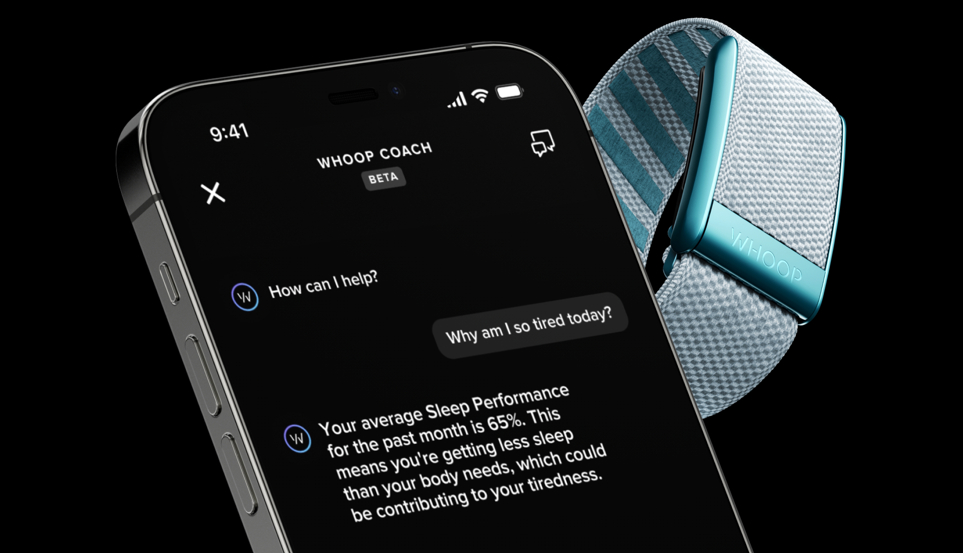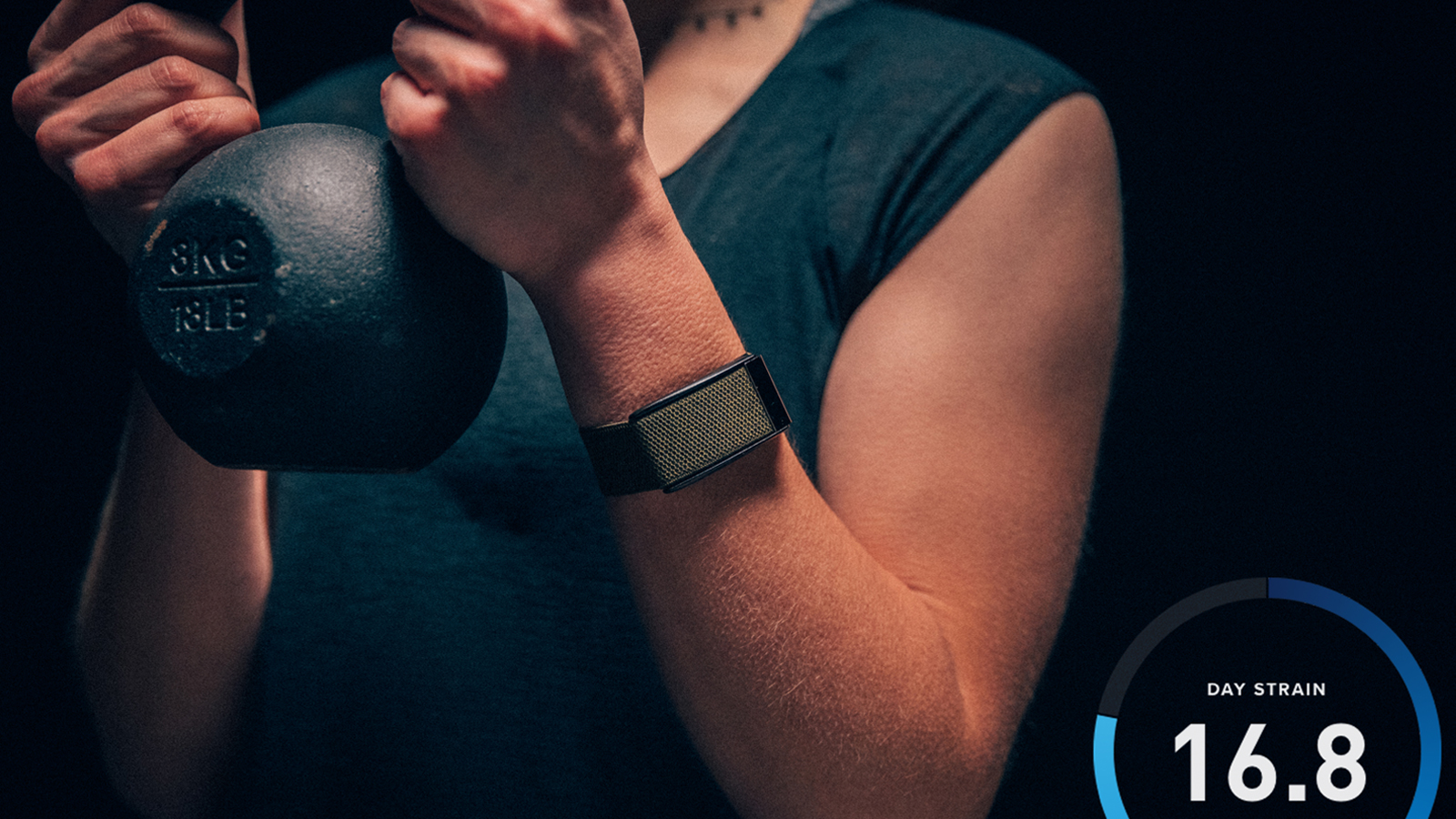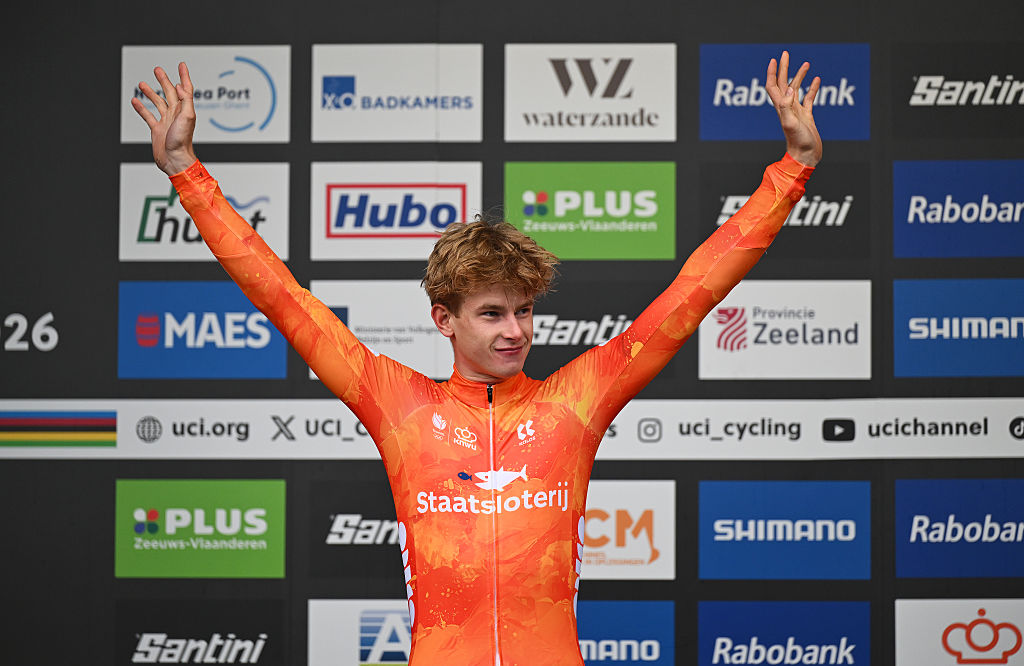Whoop to integrate ChatGPT-style coach to help users train
OpenAI chatbot connects to Whoop metrics to help users understand data

The fitness and heart-rate tracking wrist-based wearable maker, Whoop, has today announced it is integrating an artificial intelligence coach into its app.
Using GPT-4, the generative AI system from ChatGPT maker OpenAI, the new Whoop Coach feature claims to offer "personalised on-demand health and fitness coaching" to its users.
Put simply, the Whoop device is an optical heart rate sensor that you can wear against your skin, typically on your wrist or forearm. It monitors various metrics such as heart rate, heart rate variability, skin temperature and more. After pushing this data to an accompanying app, it forms a picture of its wearer's health, training, sleep and more to assign scores against 'strain' and 'recovery'.
Using these scores, users can learn their response to certain activities, such as how recovery scores plummet during illness or after an alcohol-fuelled night, or how strain scores soar after doing unfamiliar forms of exercise like a cyclist going for a run.
It has long used machine learning algorithms to calculate these scores and to 'learn' its wearer, but it has previously remained an analysis device, and any action has needed to come from the wearer or a real-life coach. Now though, it is pairing the personalised data with AI-based recommendations using OpenAI that will let the user ask questions, seek personalised advice and receive conversational responses, Whoop says.
According to the brand, these questions can range from asking for a personalised training plan for a certain event at a target pace, such as a 5km run in 24 minutes. Alternatively it can help guide the user on maintaining fitness in a change of circumstances, such as a newborn baby.
It can even field more existential questions such as "why am I so tired?" or "am I getting sick?"
The latest race content, interviews, features, reviews and expert buying guides, direct to your inbox!

"Integrating AI into the health and personal performance space can enable even more value from wearable technology,” said Brad Lightcap, COO of OpenAI. “WHOOP Coach is an exciting application of GPT-4, and we’re eager to learn from WHOOP members on how our models are helping to unlock human performance."
The AI chatbot ChatGPT broke onto the scene in December 2022 with the comprehensive and impressive way it fielded questions on all manner of topics. We even asked it to do our job reviewing cycling kits and writing race reports. Thankfully we're still in a job, but in the months since, it has achieved some impressive feats, including passing school exams and writing code for professionals.
Artificial Intelligence has already threatened to change cycling coaching as we know it. Not least with the launch of Spoked AI cycling coaching service, which combines AI algorithms with hands-on coaching for a so-called 'best of both worlds' approach. Another example is the integration of machine learning into the career algorithm of indoor cycling app, TrainerRoad, which automatically adjusts workout progressions based on feedback and performance in recent sessions.

Beyond coaching recommendations, Whoop says the new Coach feature can also provide better understanding of the science concepts that underpin it, such as answering "what is HRV?".
In addition, it can help users compare their performance to others, such as asking how their sleep compares to other people of a similar age.
Finally, it will also serve as a customer support chat bot, allowing members access to support relating to device or account troubleshooting.

Josh is Associate Editor of Cyclingnews – leading our content on the best bikes, kit and the latest breaking tech stories from the pro peloton. He has been with us since the summer of 2019 and throughout that time he's covered everything from buyer's guides and deals to the latest tech news and reviews.
On the bike, Josh has been riding and racing for over 15 years. He started out racing cross country in his teens back when 26-inch wheels and triple chainsets were still mainstream, but he found favour in road racing in his early 20s, racing at a local and national level for Somerset-based Team Tor 2000. These days he rides indoors for convenience and fitness, and outdoors for fun on road, gravel, 'cross and cross-country bikes, the latter usually with his two dogs in tow.
